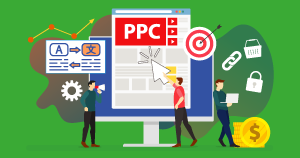Whether you are a company selling products or services, or a non-commercial entity, your business objectives are only achievable by building trustworthy relationships with your audience.
When you are expanding your business internationally and localising your website for your target market, you need to make sure that you are including trust signals, as these are necessary to instil a sense of trust into the user.
Here are the top three trust signals you need to remember when doing website localisation.
1. Payment methods
It’s difficult to overestimate the importance of offering your customers convenient and familiar payment options. Even if they are only contemplating the possibility of placing an order with your company, this is likely to be a big trust factor – on top of the obvious advantage of enabling the transaction itself to happen.
Remember that credit cards are not the preferred payment method in every country: for example, Germans are used to receiving an invoice to be paid within 30 days of the delivery, and Russians still stick to cash-on-delivery in many places. The more payment options specific to the region you are able to offer, the more likely it will be for the transaction to be completed.
2. Contact us
The ‘Contact us’ page is one of the strongest signals that a business is well established in the region and safe to deal with.
Ideally, the local phone number would feature on the website. You should be clear about which language is supported by your customer service team – remember that people will assume that they can use the local language. If necessary, employ native speakers to work in the customer service team.
A local postal address is another significant trust factor. People feel much more inclined to deal with a business when this has an office or a branch located in their country.
With regards to contact forms, ensure that the form can accept addresses in the local format. For example, “state” should not be a compulsory field outside the US.
3. Delivery and returns policies
It’s very reassuring for customers to know they can solve any after-sale issues easily. Bear in mind that the acceptable delivery time differs considerably in different countries. For example, in the UK we easily see one- or two-day delivery being offered, yet in Italy the state postal service is more likely to provide a one- or two-week delivery time. This needs to be taken into account when writing something like “please return within 14 days for a full refund” on your website, for example.
I hope this has given you a useful introduction to which trust signals you need to include as part of your website localisation efforts. For more in-depth information, and additional trust signals, read our free guide below.
Zanna Spink
Latest posts by Zanna Spink (see all)
- How to manage an international team remotely - July 21, 2023
- Watch the recording: Audience targeting strategies for international marketers - January 18, 2022
- What is multichannel marketing? - June 19, 2020






